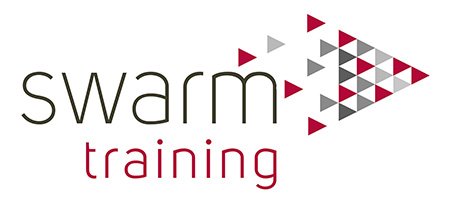Swarm’s PREVENT Policy
Version: 002
This policy details Swarm’s commitment to our Prevent duty and should be read in conjunction with our
Safeguarding policy.
Introduction
The Government Counterterrorism and Security Act 2015, places a duty upon all education providers to
address the need to prevent people from being drawn into terrorism. This Prevent Duty forms part of the
wider governments CONTEST counter terrorism strategy:
● Prevent terrorism – stop people becoming terrorists
● Pursue terrorism – disrupt and stop terror attacks
● Protect against terrorism – strengthen UK protection
● Prepare to deal with terrorism – mitigate the impact of attacks that can’t be stopped
As a nation we continue to prioritise according to the threat posed to our national security; the allocation
of resources will be proportionate to the threats we face. There has been an increase in far-right inspired
terror attacks and lone acts of terror as opposed to mass organised terror activities, the government
strategy now includes ways in which to identify risk of these instances.
The aim of the Prevent strategy is to reduce the threat to the UK from terrorism by stopping people
becoming terrorists or supporting terrorism. The Prevent strategy has three specific strategic objectives:
● tackle the causes of radicalisation and respond to the ideological challenge of terrorism
● safeguard and support those most at risk of radicalisation through early intervention
● enable those who have already engaged in terrorism to disengage and rehabilitate
Scope
This policy relates to all full time, part time and freelance staff as well as all apprentices and other learners
and employers.
Responsibilities
Responsibility for enforcing this policy lies with leaders and managers. In meeting the Prevent duty, they
ensure that all staff:
● Undertake Prevent training and regular updates/refreshers
● Monitor learners in order to identify vulnerabilities or indicators to being at risk of radicalisation
● Are aware of when it is appropriate to refer concerns about learners or colleagues to Swarm’s
Designated Safeguarding Lead or Deputy Designated Safeguarding Lead
● Exemplify British values and reinforce these with their learners
Responsibility for responding to concerns and dealing with referrals lies with:
Safeguarding Lead:
Name: Rebecca Rivett
Contact details: 07399 685766
Safeguarding Officer:
Name: Teodora Apan
Contact details: 07535 506648
Safeguarding Officer:
Name: Pete Lewin
Contact details: 07710 563226
Definitions
Radicalisation - the action or process of causing someone to adopt radical positions on political or social
issues
Terrorism – an act of terror/violence based on a political objective, whether that means the politics of
nationalism, ethnicity, religion, ideology or social class
Extremism - an ideology that is far outside the mainstream attitudes of society, including vocal or active
opposition to fundamental British values, including democracy, the rule of law, individual liberty and
mutual respect and tolerance of different faiths and beliefs.
Channel - a multi-agency approach to safeguarding, supporting and protecting children, young people and
vulnerable adults at risk of radicalisation, extremism or terrorist related activity
Staff Training
All staff are trained on Prevent including indicators of radicalisation and their responsibilities under Prevent
using Government e-learning resources. Courses include key information enabling staff to meet their
Prevent responsibilities:
● the Prevent duty
● different forms of extremism and terrorism
● the risk around radicalisation and your supportive role
● making a Prevent referral that is both informed and made with good intention
● the interventions and support available
Learner Safety, Engagement & Curriculum
The duty encompasses building learner resilience to the threat of radicalisation, challenging extremism and
raising awareness of and demonstrating British values:
● Democracy
● Rule of Law
● Tolerance and understanding of different faiths
● Challenging discrimination
● Individual liberty
Opportunities to promote the above values and ensure learners are aware of how to keep themselves safe
from radicalisation are currently facilitated by tutors throughout the learning programme and are
reinforced through periodic progress reviews.
Referrals
Any tutor that has a concern about a learner, employer, other staff member or any other person they come
into contact with, should communicate their concern to Swarm’s Designated Safeguarding Lead or Deputy
Designated Safeguarding Lead.
Once the Designated Safeguarding team has been informed, they will make a decision on whether the issue
needs to be escalated to the local police Prevent Officer. The Designated Safeguarding team/staff member
that is involved with the referral will then support the Channel process as seen fit by the local Channel
panel. It should be noted that referral to the Channel process is not a criminal intervention.
It should also be noted that a learner displaying one or more of the vulnerabilities and indicators does not
mean they will necessarily be at risk of radicalisation, but it may do so and so tutors should communicate
with the Designated Safeguarding team in order to reach a decision on further action if any.
If a tutor or apprentice feels that they or anyone else is in immediate danger, this should be reported
directly to the Police without delay.
Jennifer Perry - CEO
July 2024
